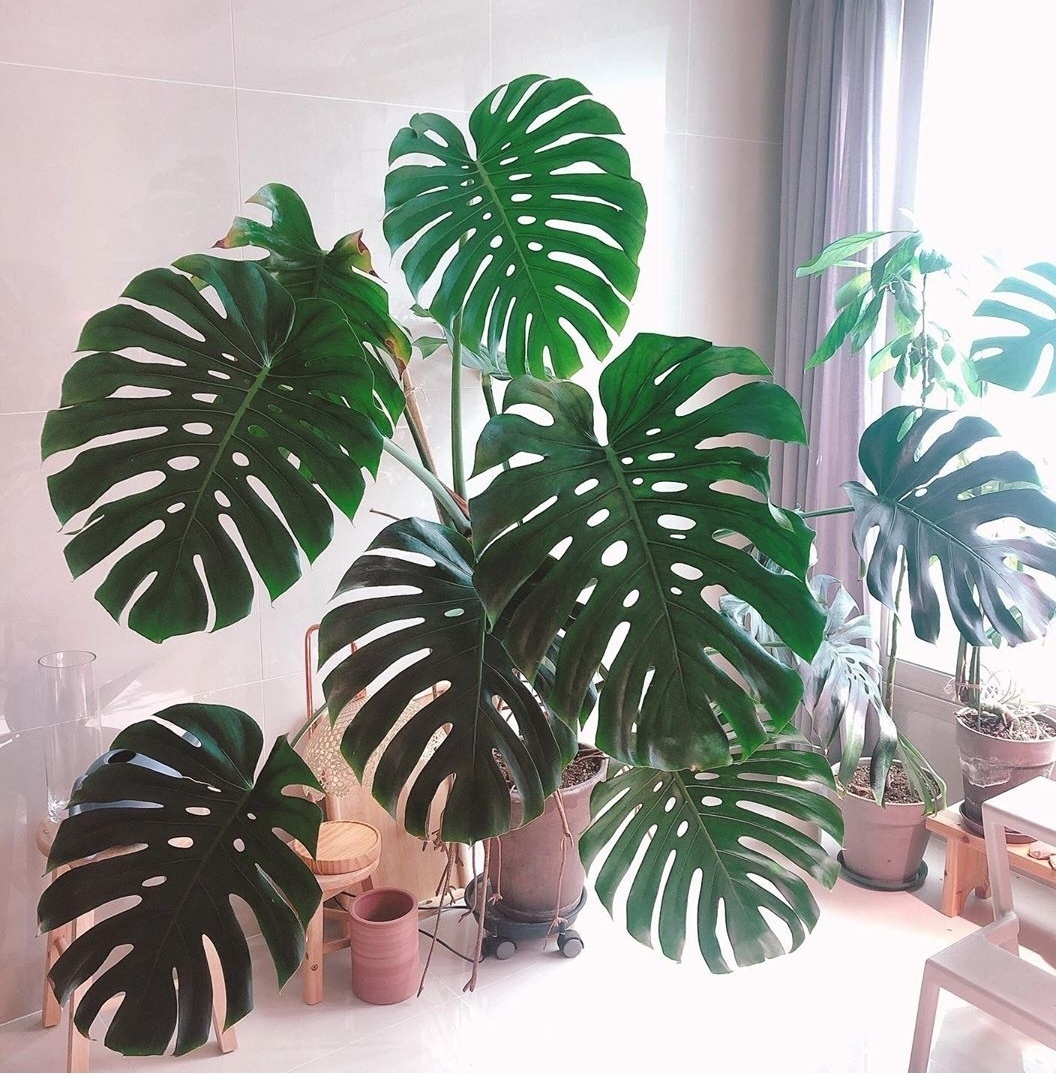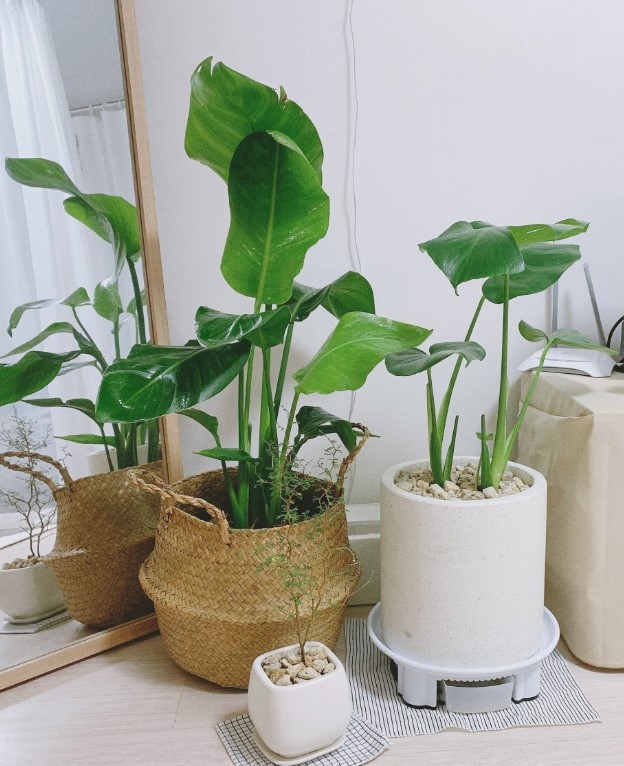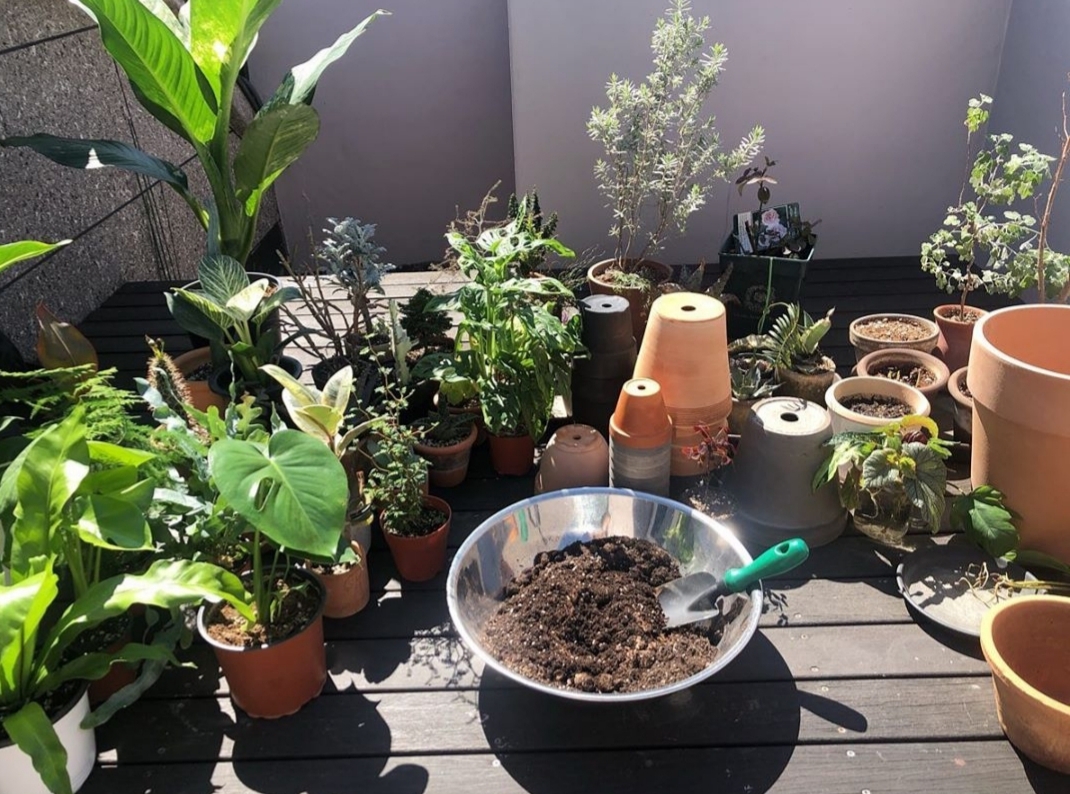 |
Lim Elang has cared for her Swiss cheese plant for five years. (Courtesy of Lim Elang) |
As soon as Choi Seoul-gi, 26, gets home from work, she checks on the six plants she bought last summer: an orange jasmine, a Guiana chestnut tree, a Swiss cheese plant, an alocasia, a bird of paradise and another plant she can’t remember the name of.
When she moved to a studio apartment last year, she was a bit lonely. That’s why she started bringing plants home, almost one every month. “As human beings, we have a desire to be loved, but the important thing is that we also have a desire to give love and care too. I feel so happy when I care for my plants.”
As the number of single-person households grows every year, accounting for nearly 30 percent of households in South Korea, keeping plants has grown popular as a way to ease loneliness, even among younger people.
For plant lovers, plants are not simply decorations; they are living beings that grow with them. They call them “companion plants.”
“I almost killed the Swiss cheese plant last year, the first plant I adopted,” Choi said. “I was so sorry for my plant, thinking that I was abusing my plant. I feel like they have become my kids. That is why I say ‘adopt,’ not ‘purchase’ or ‘buy.’”
 |
Choi Seoul-gi has six plants at home, including an orange jasmine, a Guiana chestnut tree, a Swiss cheese plant, an alocasia and a bird of paradise. (Courtesy of Choi Seoul-gi) |
Watering more than 100 plants and cleaning their leaves has become a routine for Lim Elang, who fell into indoor gardening. She is neither a professional gardener nor a florist. She is a musician who plays bass for Dear Cloud, a modern rock band.
“I personally think a single-person household should not own a pet because it would be hard to properly care for their pets. It would be a little selfish,” said Lim, who lives alone.
Keeping companion plants is not simply a substitute for having a pet, and plants do have their own merits, Lim said. Last year, she published a book on the subject.
“Plants and I soon became friends. I did not have to dress up or put on a fake smile in front of the plants to introduce myself,” Lim said in her book. “Plants grew as much as the care I gave. This healthy way of reaction made me happy.”
 |
Lim Elang cares for more than 100 “companion plants” at home. (Courtesy of Lim Elang) |
Leafy, a company that provides tips on growing plants through social media and sells plants online, has more than 70,000 followers on Instagram. The company is run by nine people in their 20s or early 30s.
“Indoor gardening was once regarded as a grandparents’ thing by many younger people, and I never understood why my grandmother would constantly stroke the leaves of plants. But now I do the same and I feel at peace,” said Jeon Je-il, the manager of the company, who started indoor gardening when he was living by himself.
Leafy has come up with some creative ways to fulfill the tastes of younger plant lovers on social media. The company initiated a project called “Plant Space,” aggregating Instagram direct messages about people’s experiences of growing plants and regularly sharing them with subscribers.
“We are also thinking about a new project of sharing plants,” Jeon said. “It would be interesting if people could exchange offspring from the plants they grow.”
Shin Ji-eun, who runs Kkot, Jieun, a flower shop in Nonhyeon-dong, southern Seoul, said caring for plants became a trend among young people some three years ago.
“There are many studio apartments near our store and even male customers regularly visit to buy plants,” she said. “I recommend Dracaena stuckyi and Sansevieria moonshine for novices.”
In a Seoul Metropolitan Government survey last year of elderly people who were given a plants by the city government, 92 percent of the respondents said caring for the plants relieved depression.
Kim Wan-soon, a professor of environmental horticulture at the University of Seoul, says the popularity of companion plants is related to the increase in single-person households.
“Plants show slow reaction, but we get a sense of comfort by caring for plants as companions,” Kim said. “If you live alone, taking care of animals is difficult, and sometimes it can even be stressful. But plants are different.”
Noting that we live in an urban environment where we are exposed to high levels of stress daily, Kim said, “Nature, such as indoor gardening, will also help us relax.”
By Park Yuna (
yunapark@heraldcorp.com)








![[Herald Interview] 'Trump will use tariffs as first line of defense for American manufacturing'](http://res.heraldm.com/phpwas/restmb_idxmake.php?idx=644&simg=/content/image/2024/11/26/20241126050017_0.jpg)
![[Health and care] Getting cancer young: Why cancer isn’t just an older person’s battle](http://res.heraldm.com/phpwas/restmb_idxmake.php?idx=644&simg=/content/image/2024/11/26/20241126050043_0.jpg)
